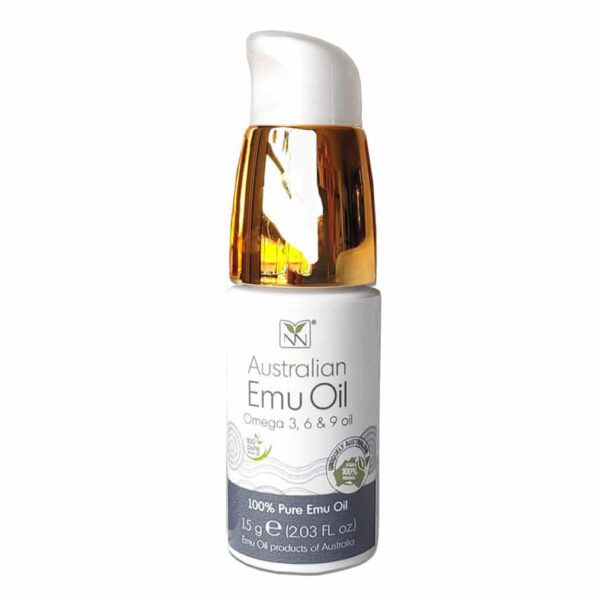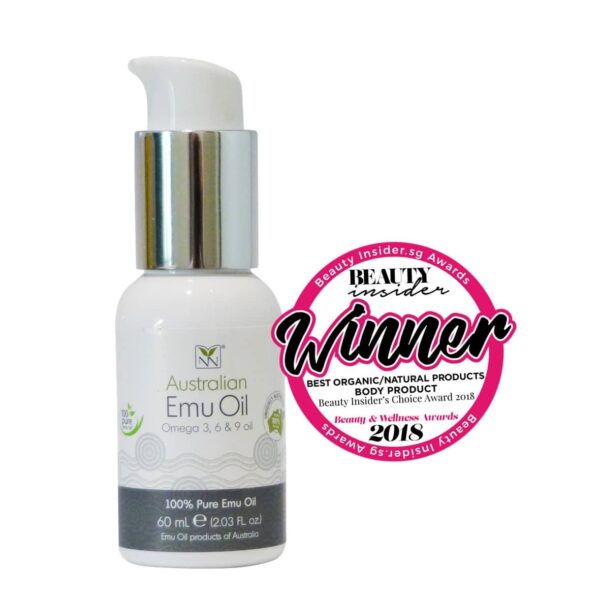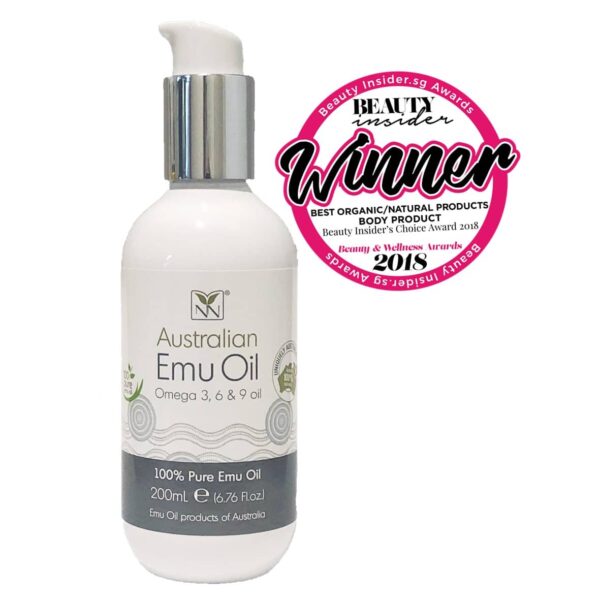Emu oil is not the only solution to calm flare-ups. There are many other “eczema oils” available, such as coconut oil, argan oil, jojoba, and more.
Today, let’s look at how these various oils, including emu oil, are used for eczema management. We will look at how they are derived, some popular brands, their main benefits, and also the pros and cons of each compared to emu oil.
But first, a brief recap about emu oil:
- Derived from the fat of the emu
- A complex fatty acid containing vitamins, minerals and Omega 3 and 6
- Known for its deep penetrating abilities
- Improves the skin barrier and reduces allergic reactions
- Contains antioxidants to regenerate skin
- Contains high concentrations of linolenic acid which has antibacterial properties
Learn more about how emu oil helps eczema
Emu Oil vs. Coconut Oil
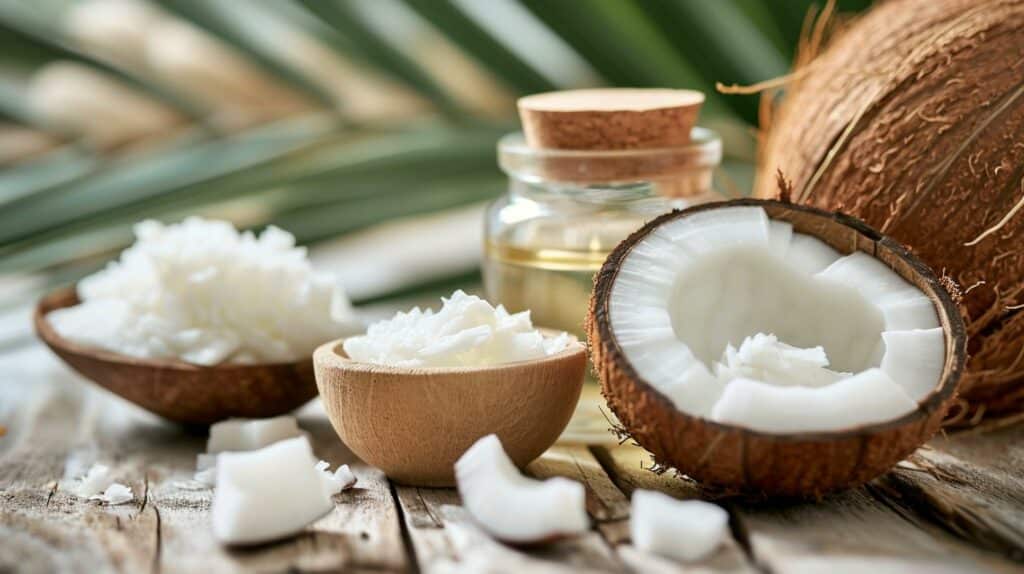
Coconut oil is extracted from raw or dried coconuts. It has a high lauric acid content, which is useful to fight harmful microorganisms. Its antibacterial properties also make it useful to treat acne. It can also be safely used as a moisturiser to improve skin hydration.
Pros and Cons:
Coconut oil can be cheaper than emu oil, and there is a huge range of brands to choose from. One popular brand includes Nutiva. However, coconut oil can be comedogenic for some, potentially clogging pores and causing blackheads.
On the other hand, emu oil’s strength lies in its ability to reduce inflammation and deeply moisturise the skin. And since the complex fatty acids are easily absorbed, it won’t leave an oily feeling on your skin.
Emu Oil vs. Jojoba Oil

Jojoba oil comes by cold pressing the seeds of the jojoba plant. A popular brand is Cliganic. Jojoba oil mimics the skin’s natural oils, so it can help regulate sebum production, making it excellent for both oily and dry skin types. It also contains iodine to help in healing and can potentially help speed up wound closure and collagen synthesis.
Pros and Cons:
Jojoba Oil is great for combination skin types due to its balancing properties but might not provide enough moisture for severe eczema. However, emu oil is known for its deep penetrating abilities, reaching deeper into the skin than most oils, including jojoba. This can be particularly beneficial for very dry or inflamed skin that requires deep moisturization and healing.
And, while both oils have anti-inflammatory properties, emu oil has been noted particularly for its ability to reduce inflammation and promote healing.
Emu Oil vs. Evening Primrose Oil
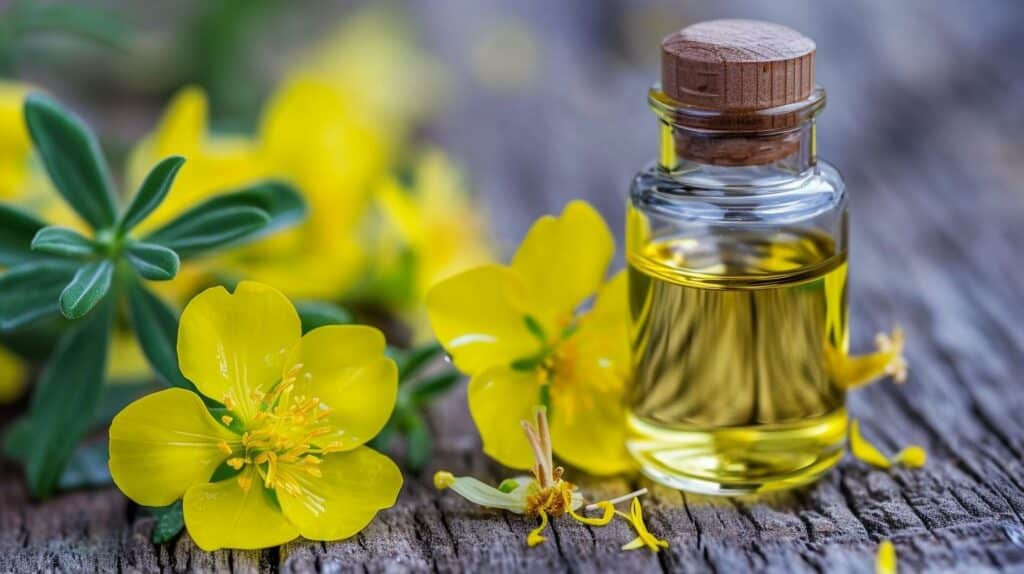
Evening primrose oil (EPO) is cold-pressed from the seeds of evening primrose flowers, which are found mainly in North America. EPO’s healing benefits may be due to its gamma-linolenic acid (GLA) content. It is generally eaten as a supplement, but can also be applied to the skin. Although there has not been any research linking topical EPO to improvement of eczema.
Pros and Cons:
As a source of GLA, evening primrose oil can be beneficial for overall skin health and moisture retention but may not be as effective in acute inflammation. Popular brands include Weleda. On the other hand, emu oil does better at reducing inflammation while providing deep moisturisation.
Emu Oil vs. Tea Tree Oil

Tea Tree Oil comes from the Australian tea tree. To make it, it’s leaves are steam-distilled. As steam is passed through the leaves, it carries the oil in the steam droplets. Then, the steam is cooled and the oils are separated from the water to make the product. One popular tea tree oil is Thursday Plantation.
The primary property of tea tree oil is as an antiseptic. It has been used by Aboriginal Australians to treat wounds and reduce infection in broken skin.
Pros and Cons:
Tea tree oil is useful as an antiseptic. But for those who are going through an eczema flare up (or topical steroid withdrawal) with broken skin, applying it undiluted to wounded areas will cause painful stinging. This could irritate your skin far more than healing it.
A more gentle method would be to use antiseptic silver gel to disinfect the area, followed by emu oil to reduce inflammation and retain skin hydration.
Emu Oil vs. Argan Oil
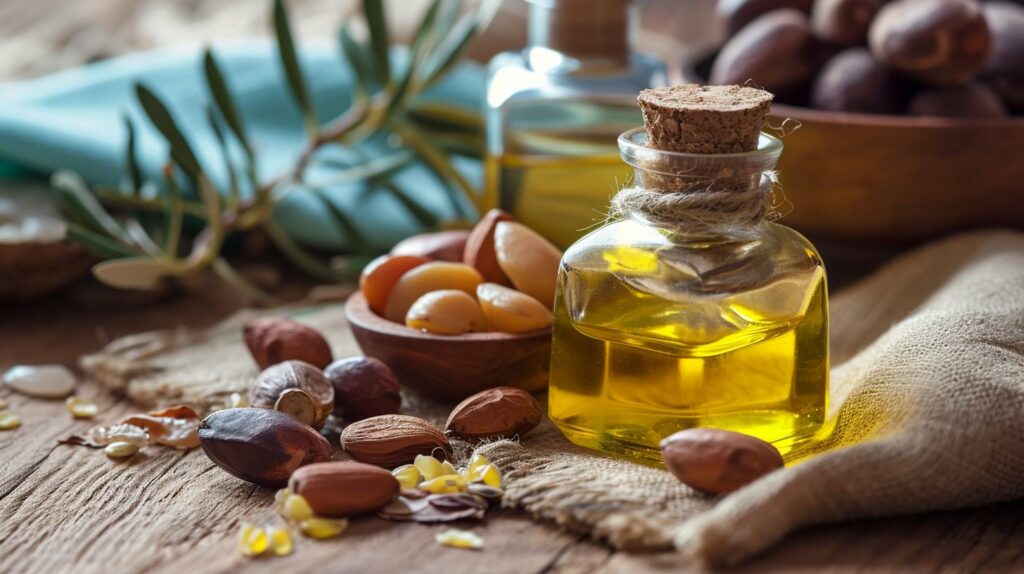
Argan oil comes from the Moroccan argan tree. The argan fruits are slightly bigger than olives, and the seed inside is dried, roasted and pressed to extract the oil. The main benefit of Argan oil is that it is high in vitamin E and fatty acids, which help in improving skin elasticity.
Pros and Cons:
Both argan oil and emu oil are excellent moisturisers. Argan oil is great for surface hydration and is easily absorbed, while emu oil goes deeper and may provide more intensive hydration. And, both oils have anti-inflammatory properties. But emu oil is particularly noted for its potent anti-inflammatory effects, which can be more beneficial in reducing redness and calming itching.
Emu Oil vs. Borage Oil

Borage oil is derived from the seeds of the borage (Borago officinalis) plant, also known as starflower. Similar to evening primrose oil, borage oil is valued for its high gamma-linolenic acid (GLA) content, a type of omega-6 fatty acid. One popular brand is The Ordinary. However, studies have not found any significant benefit of borage oil in treating eczema.
Pros and Cons:
Both borage and emu oils provides anti-inflammatory effects and improves the skin’s moisture barrier, making it a strong option for daily management of dry, irritated skin. But emu oil’s deep moisturisation and potent anti-inflammatory action make it particularly effective for treating acute eczema flare-ups and deeply hydrating the skin. Your choice will depend on the severity of your eczema and how your skin responds to each oil.
Emu Oil vs. Rosehip Oil

Rosehip oil is extracted from the seeds of certain rose species, primarily the Rosa rubiginosa or Rosa moschata. A popular brands of rosehip oil is Trilogy, available at Fairprice.
Rosehip oil is high in vitamins A (retinol), C, and E, which are all powerful antioxidants. These components help fight against damage from free radicals, promote skin regeneration, and improve skin texture.
Pros and Cons:
Rosehip Oil is good for skin rejuvenation and healing but might not provide enough moisture for severe eczema cases. It is lighter and may be more suitable for mild eczema or maintaining healthy skin. Both oils have anti-inflammatory properties, but emu oil is particularly noted for its powerful anti-inflammatory action, which can be more effective in soothing acute inflammation and itchiness associated with eczema.
Emu Oil vs. Lanolin
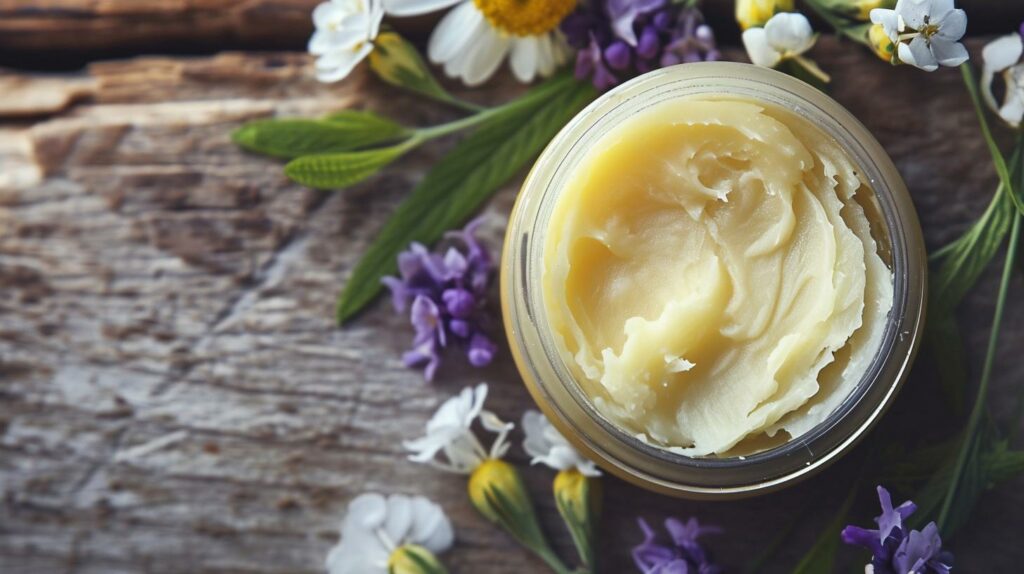
Lanolin is not really an oil. It is derived from sheep’s wool, with brands like Lansinoh being popular among new mothers. Lanolin is an effective emollient, softening and soothing dry skin. It creates a protective barrier on the skin’s surface, preventing water loss and keeping the skin hydrated. Lanolin is also known to promote healing of cracked, irritated skin, which is common in eczema. It can help repair the skin barrier, which is often compromised in eczema.
Pros and Cons:
Lanolin is great for locking in moisture but can feel heavy and greasy on the skin, leaving a thick residue. Lanolin acts as a barrier, locking in moisture and protecting the skin. On the other hand, emu oil provides deep hydration, penetrating the skin’s lower layers to nourish and hydrate from within.
Both oils promote healing. Lanolin is good for healing cracked skin after a flare-up. Emu oil is known for its ability to promote skin regeneration and may be more effective in reducing the appearance of eczema scars over time.
Which oil works for you?
Each oil listed above has unique benefits that make it suitable for eczema-prone skin. For example, some oils focus on deep moisturisation, while others have antibacterial properties. Understanding their specific properties and how they interact with your skin is key to finding the right fit for long-term eczema management.
At Skinshare.sg, I am a big supporter of Emu oil for eczema, as it helped me when I was going through my topical steroid withdrawal. I still use it twice a day, every day as part of my eczema management. But of course, your mileage may vary, and it’s important to try out different products to see what works for your skin.
If you are interested in trying emu oil for your eczema, you can start with the travel-size Y-Not Natural Emu Oil (15g). It’s small enough to be carried in your handbag, so you can apply it whenever you need.


